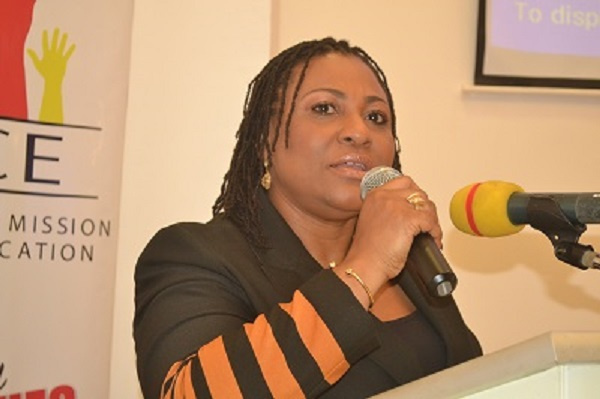Fight against corruption: Critical ingredients necessary for achievement of SDGs
The National Commission for Civic Education has tagged public accountability, rule of law, good governance, efficient management of the environment and natural resources devoid of corruption as critical ingredients necessary for the achievement of the Sustainable Development Goals.
The NCCE recounted that the targets of goal 16 of the SDGs was the call for substantial reduction of corruption and bribery in all its forms and the need for nations to develop effective, accountable and transparent institutions at all levels.
Ms Josephine Nkrumah, NCCE Chairperson in an interview with the Ghana News Agency in Accra on Monday, explained that Ghana like many other developing nations established several anti-corruption and public accountability institutions for the fight against corruption.
However, efforts at fighting corruption, holding persons and organizations entrusted with public resources to account for their stewardship and addressing poor environmental governance and practices in Ghana had not yielded the desired outcomes, she said.
Ms Nkrumah said as part of its civic education engagements, NCCE had been involved in numerous education programmes aimed at supporting Ghana’s anti-corruption and public accountability.
The NCCE anti-corruption programme through ARAP was instituted through an agreement between the European Union Delegation (EUD) and the Government of Ghana (GoG) to reduce corruption, improve accountability and respect for existing legal structures.
Ms Nkrumah said the NCCE conducted a baseline study, in 2017, on public perception of the state of corruption, public accountability and environmental governance in Ghana.
The findings of the study helped to inform and guide the Commission’s nationwide education on anti-corruption, improved accountability and better management of the environment.
“The study also provided baseline data for assessing the progress of the ARAP by both coordinating and implementing agencies,” she noted.
Ms Nkrumah noted that in 2020, the Commission conducted another survey, which was married into an end-line report also focusing on an assessment of the outcomes of the public education and civic engagement activities carried out by the Commission under ARAP.
The NCCE Chairperson said the results from the current 2020 Anti-Corruption study were compared with the baseline data to help gauge the impact of education activities undertaken by the Commission.
The 2020 survey gathered information from 4,220 Ghanaians from 108 selected districts in Ghana. The data was collected in August 2020.

The survey provided an understanding of citizen’s awareness and knowledge about the concepts of corruption and public accountability and opinions on the performance of anti-corruption /public accountability institutions in the country over the project implementation period (2017-2020).
The report also provided detailed and comprehensive discussion of environmental concerns and perceptions on institutional response to manage the environment and natural resources.
It also highlights citizens’ knowledge about NCCE’s education on anti-corruption, public accountability and environmental management.
Source: GNA

